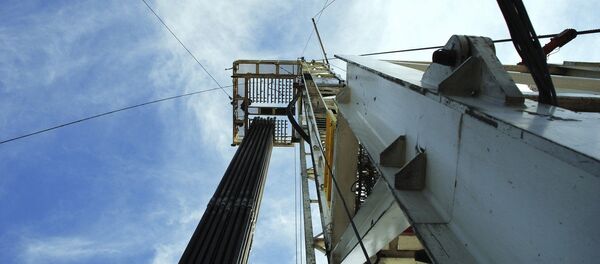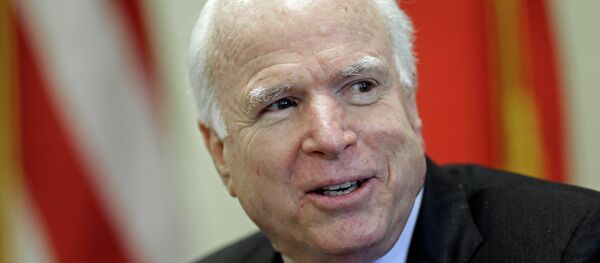"One bank, I believe, it was Lloyds, called off a line of credit to a Russian enterprise, I think it was Rosneft," he said. "And HSBC Holdings London followed suit several days later. Soon enough the snow ball effect came in and then we had a report that this had been made at the behest of the [US] Treasury department."
Patrick Smith explained that it was a set of sanctions that the Western Europeans were quite reluctant to impose. Their implementation required direct telephone contact from the Treasury, ordering banks to cut off lines of credit to Russian companies. In other words, betraying the Europeans and pressing the sanctions further than anybody intended.
"Chevron is a very aggressive shale gas explorer and these resources are plentiful all over Europe, including Ukraine," he said. "We now have consistent reports of Chevron’s activities all over the CIS and former CIS nations. We have Lithuania, Romania and now Ukraine. As the picture emerges, the war fought in the name of terror ridiculously enough, the war that Kiev is calling an anti-terror campaign is actually all about energy resources. And I doubt that I can see a justification for thousands of Ukrainians to die for it."
Patrick Smith also explained that the benefits of these sanctions are not apparent to the banks. In fact, it is not a question of benefits, but a question of staying onside with the American government.
"I think it is about what one thinks would be the penalties for not cooperating. So, it is not a question of cooperation but rather of avoiding a punishment for not cooperating," he said.
"Recall, Vice President Biden’s son has been appointed to the board of directors of Burisma — number one gas producer and gas driller in Ukraine – a shocking display of conflicting interests," he said. "He does Burisma’s legal work. Why would that be? We probably should look forward to joint exploration agreements and joint ventures in order for Western energy companies to get to Ukrainian resources, pushing Russia out."
Patrick Smith is the author of 'Time No Longer: Americans After the American Century'. He was the International Herald Tribune’s bureau chief in Hong Kong and then Tokyo from 1985 to 1992. During this time he also wrote 'Letter from Tokyo' for the New Yorker. He is the author of four previous books and has contributed frequently to the New York Times, the Nation and the Washington Quarterly amongst other publications.




